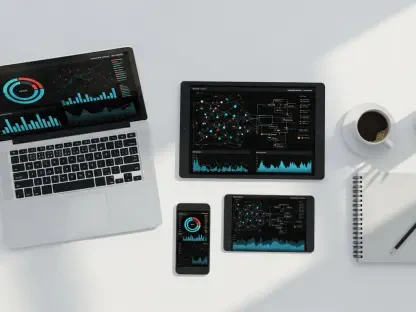Selecting the right project management software can be a game-changer for your organization. Whether you’re a small team, a large enterprise, a startup, a creative unit, or a nonprofit, the right tool can enhance productivity, foster collaboration, and ensure project success. With a plethora of options available, how do you choose the best one for your team’s unique needs? Let’s explore.
Before diving into the specifics of various tools, it’s critical to understand your team’s unique needs, working methodologies, and project scope. Small teams might prioritize simplicity and ease of use, whereas large enterprises may require advanced features and robust integrations. Startups often need versatile and scalable solutions, while creative teams seek flexibility and media support. For remote teams, real-time collaboration and integration with communication tools are key. Nonprofits, operating on limited budgets, focus on affordability and essential features. Understanding these distinct needs sets the foundation for selecting the right project management software.
Small Teams: Simplistic Yet Powerful Tools
Small teams often handle multiple projects simultaneously, requiring tools that are easy to navigate and collaborate on. Trello is a popular choice for its simplicity and visual appeal, using a card-and-board system to track various tasks. Each card represents a task, allowing team members to add comments, attachments, due dates, and checklists, making it easy for everyone to stay aligned. This straightforward interface means that teams can get up and running with minimal training, allowing them to focus more on their projects rather than learning new software.
Asana offers a more structured approach with its task creation and assignment features. It allows for multiple views like lists, boards, and calendars, making task management flexible and adaptable to various workflows. Additionally, its integration with other tools like Slack and Google Drive enhances its versatility for small teams. Asana helps teams manage their tasks through various stages of completion and provides a clear overview of progress, thus making it easier to identify bottlenecks and areas that need attention.
Monday.com combines features of both Trello and Asana, offering customizable workflows that can be tailored to fit the needs of any small team. With multiple view options, such as Kanban boards, Gantt charts, and calendars, it ensures that team members can visualize and manage tasks effectively while introducing automation options to streamline processes. The platform’s robust customization capabilities allow teams to mold the software according to their specific needs, providing a tailored experience that can adapt as they grow.
Large Enterprises: Robust and Integrated Solutions
Large enterprises require robust project management tools offering advanced features like resource management, detailed reporting, and seamless integration with other enterprise systems. Microsoft Project is a heavyweight contender in this category, providing comprehensive planning, scheduling, and resource management capabilities. It integrates smoothly with other Microsoft tools like Excel and Outlook, ensuring a cohesive workflow across the organization. Advanced features like Gantt charts and detailed reports make it a go-to for managing large-scale projects that require precise scheduling and resource allocation.
Jira by Atlassian is another strong candidate, particularly for teams following Agile methodologies. It supports customized project tracking and integrates with other Atlassian products like Confluence and Bitbucket, allowing for a well-rounded project management ecosystem. Jira’s ability to support Scrum and Kanban frameworks makes it a versatile choice for Agile teams. It offers functionalities such as sprint planning, user story mapping, and backlog management, making it easier to adapt to rapidly changing project requirements.
Smartsheet combines the familiarity of a spreadsheet with advanced project management functionalities. It supports detailed planning and tracking while enabling real-time collaboration, making it an excellent choice for large enterprises looking for a versatile and comprehensive tool. Smartsheet’s ability to create intricate project plans while maintaining the simplicity of a spreadsheet interface allows for both granular control and ease of use. Its real-time collaboration features ensure that all stakeholders are always on the same page, regardless of their location.
Startups: Versatile and Scalable Tools
Startups need project management software that is both versatile and scalable to accommodate their rapid growth and diverse project requirements. ClickUp stands out for its high versatility and customization options. It supports various project management styles, including task creation, deadline setting, and multiple view options, making it adaptable to different projects and team preferences. The software’s ability to integrate with numerous platforms makes it an invaluable tool for startups needing an all-encompassing solution that can grow alongside their evolving needs.
Notion combines project management with note-taking features, providing a flexible workspace for startups. It allows for project boards, task lists, and embedded databases, enabling effective collaboration and knowledge management within a single platform. Notion’s inherently versatile nature makes it suitable for a range of functions from simple task tracking to complex project planning. This flexibility allows startups to consolidate multiple tools into one, simplifying their tech stack and saving costs.
Wrike offers a robust suite of features, including task management, time tracking, and workload management. Its scalability makes it suitable for growing startups, providing advanced functionalities like Gantt charts and detailed reporting as the business expands. Wrike’s powerful analytics and reporting tools enable startups to make data-driven decisions, thereby improving efficiency and productivity. The ability to scale up as the organization grows means that Wrike can serve startups not only at their inception but also as they mature.
Creative Teams: Flexible and Media-Supportive Tools
Creative teams thrive on flexibility and the ability to manage various media types. Their project management software must accommodate these unique needs. Airtable provides the flexibility to manage projects through various formats, such as grids, galleries, calendars, and Kanban boards. It supports rich media types and customizable workspaces, making it ideal for managing creative processes that involve multiple forms of media. Airtable’s ability to link records across tables ensures that creative teams can manage complex projects without losing sight of the big picture.
Basecamp focuses on intuitive task organization and communication tools. It facilitates idea exchange and feedback within teams through its straightforward platform, allowing creative teams to collaborate effectively without complexity. With its simple to-do lists, message boards, and file sharing capabilities, Basecamp streamlines the project management process, making it easier for creative professionals to focus on their work rather than on navigating complex software.
Zoho Projects supports complex project needs with features like milestone setting, task assignment, and progress tracking. It integrates with other Zoho apps, providing a cohesive ecosystem for managing detailed creative projects. This integration allows creative teams to utilize tools like Zoho Docs for document storage or Zoho CRM for customer relationship management, thereby creating an all-in-one solution for creative project management. Zoho Projects’ advanced features such as Gantt charts and resource utilization reports further enhance its appeal to creative teams.
Remote Teams: Tools for Real-Time Collaboration
For remote teams, real-time collaboration and integration with communication tools are essential for maintaining productivity and cohesiveness. Teamwork excels in task management, time tracking, and project templates. It integrates well with remote work tools like Slack, Google Drive, and Dropbox, ensuring seamless collaboration despite geographical distances. Teamwork’s time-tracking feature allows remote teams to manage their hours efficiently, making it easier to track project costs and ensure timely delivery.
Smartsheet offers a versatile solution by combining the functionality of spreadsheets with project management features. Its various views and real-time collaboration capabilities make it suitable for remote teams who need to stay aligned across different time zones and locations. Smartsheet’s ability to support complex project plans while maintaining real-time updates ensures that all team members are always in sync, regardless of their location. The platform’s integration with tools like Microsoft Teams and Slack further enhances its collaborative capabilities.
TeamGantt specializes in Gantt chart-based project planning, providing real-time updates, task management, and integration with remote work tools like Slack and Trello. Its user-friendly interface enables remote teams to plan, track, and visualize projects efficiently. TeamGantt’s real-time updating feature ensures that all changes are reflected immediately across the team, avoiding any miscommunication or delays that can often plague remote work. The integration with other popular tools ensures that TeamGantt fits seamlessly into the existing workflows of remote teams.
Nonprofits: Affordable and Essential Solutions
Nonprofits, operating on limited budgets, need project management tools that offer essential features without breaking the bank. Trello is a highly affordable option, providing basic yet effective project management capabilities through its card-and-board system. It allows nonprofits to organize tasks, collaborate in real time, and maintain transparency without incurring high costs. The simplicity and intuitive interface of Trello mean that teams can quickly adapt to the platform and begin managing their projects without extensive training.
Asana provides a free tier with sufficient capabilities to meet the needs of nonprofits, such as task creation, project tracking, and collaboration. Its multiple view options and integrations with other tools make it a versatile solution for organizations operating on limited budgets. Asana’s user-friendly interface and organizational features help nonprofits streamline their workflows and enhance productivity without significant financial investment.
Todoist is another cost-effective solution, offering essential task management features such as task creation, deadline setting, and priority tracking. Its integration with other productivity tools like Google Calendar and Dropbox ensures that nonprofits can create a cohesive workflow without additional expense. Todoist’s straightforward design and mobile app support make it easy for team members to manage tasks on the go, ensuring continuous progress even with budget constraints.









